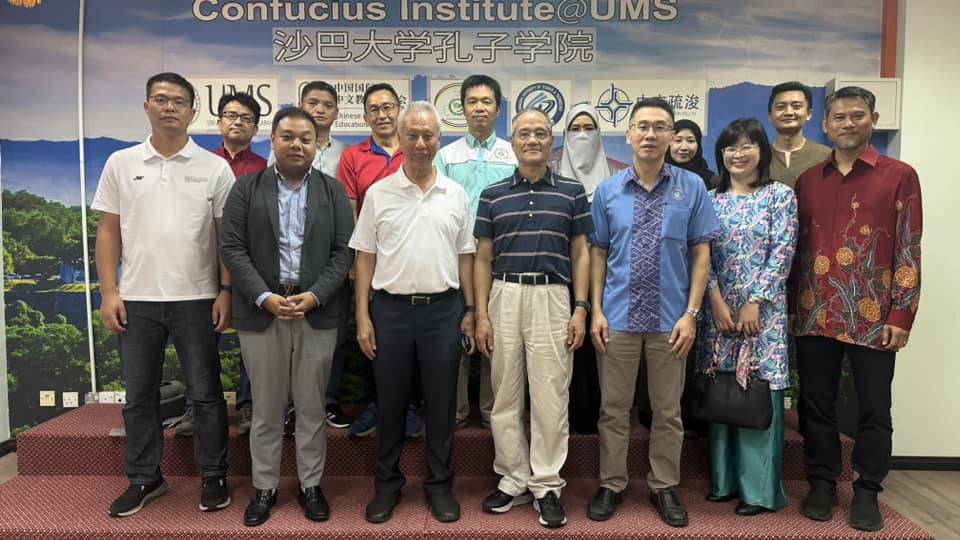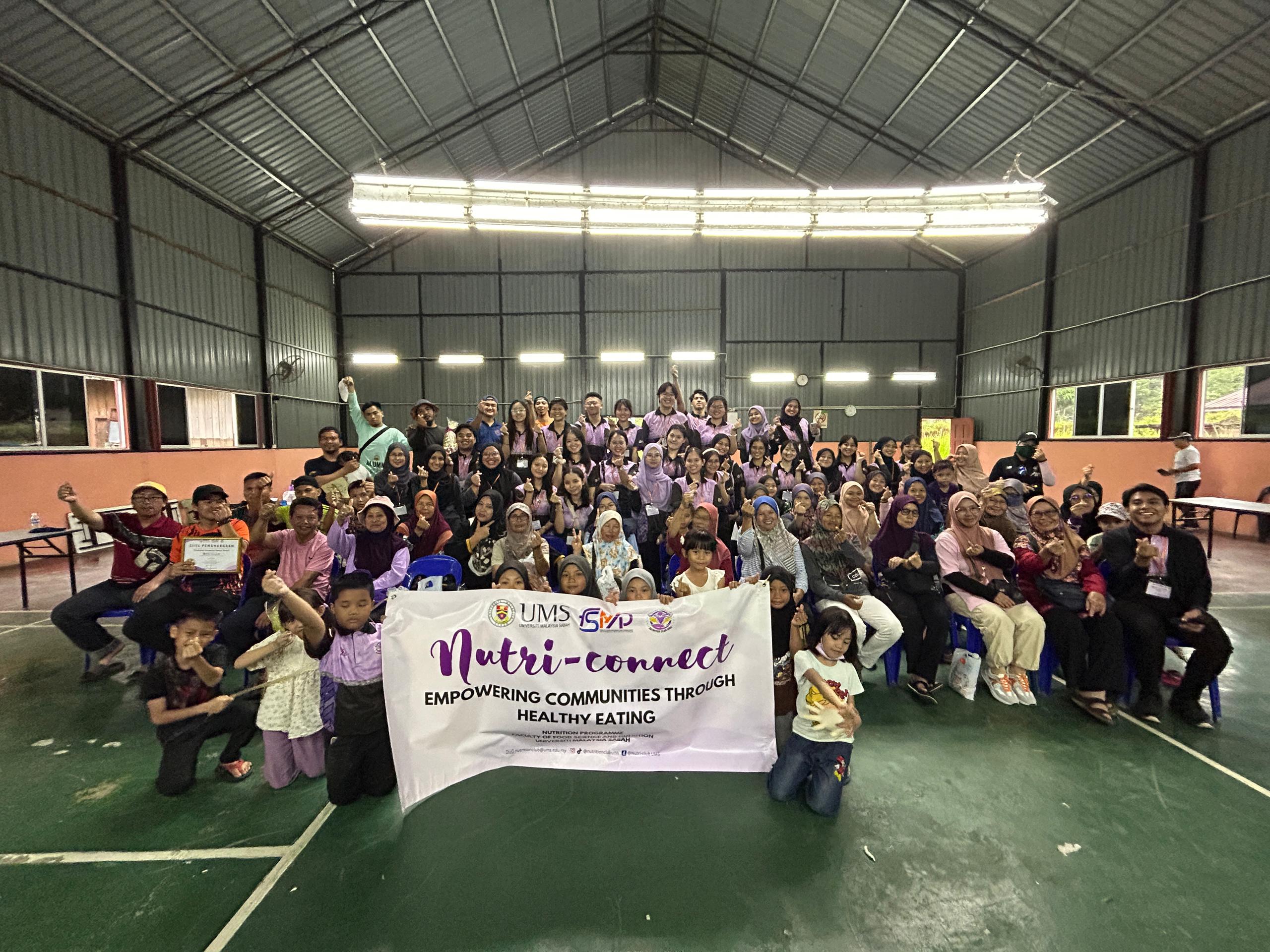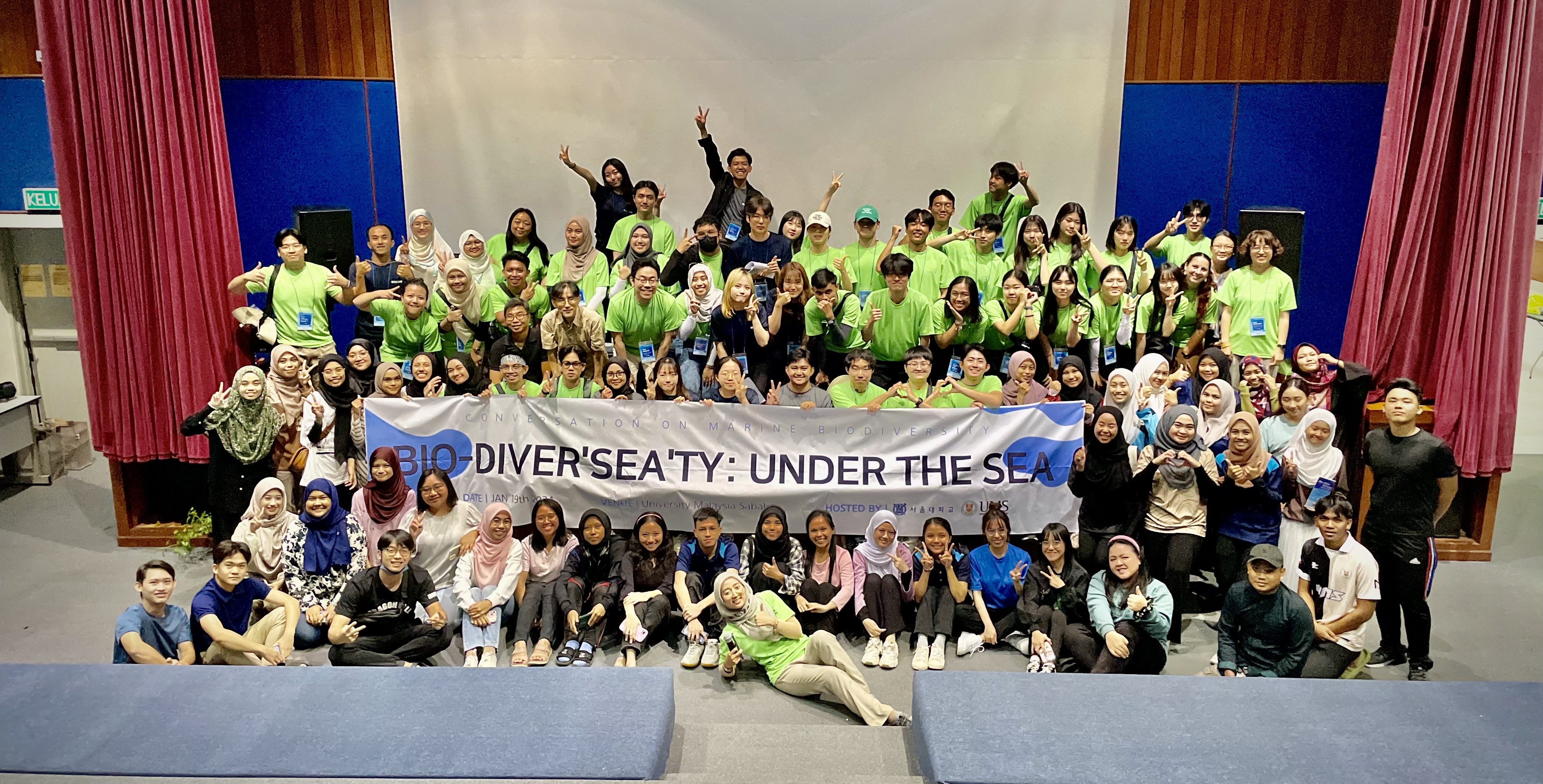 In a demonstration of international collaboration, the Faculty of Business, Economics, and Accountancy at Universiti Malaysia Sabah (UMS) recently hosted a Mobility Exchange Initiative event, fostering connections between Huaqiao University and UMS.
In a demonstration of international collaboration, the Faculty of Business, Economics, and Accountancy at Universiti Malaysia Sabah (UMS) recently hosted a Mobility Exchange Initiative event, fostering connections between Huaqiao University and UMS.
The event, held at the Confucius Institute, brought together prominent figures from academia, commerce and religious research to explore potential avenues for cooperation.
Chaired by Prof Ts Dr Chong Khim Phin, director of the Confucius Institute at UMS, the event was graced by esteemed guests, including Datuk Frankie Liew, president of the Sabah China Chamber of Commerce (SCCC), and Professor Zhang Yudong, former Vice President of Huaqiao University.
The diverse group of attendees underscored the broad spectrum of collaboration possibilities between the two institutions.
The discussions delved into various areas of potential collaboration, highlighting the following key points:
Mobility Programs: Both institutions expressed interest in establishing mobility programs for students and academics. This exchange initiative seeks to facilitate cultural immersion and academic enrichment, promoting a deeper understanding between Malaysian and Chinese students.
Research Collaboration: The participants explored opportunities for collaborative research between Malaysia and China on overseas Chinese religion and culture. This initiative aims to deepen the understanding of cultural heritage and foster academic cooperation.
50th Anniversary of Diplomatic Relations: With the year 2024 marking the 50th anniversary of diplomatic relations between Malaysia and China, the participants discussed potential celebratory events and collaborative projects to commemorate this significant milestone.
Cultural Training: Recognizing the importance of cultural understanding, there were talks about implementing cultural training programs to strengthen Chinese culture and enhance cross-cultural communication.
Comparative Studies: Dr Zaifuddin Md Rasip suggested potential activities in comparative religious studies. This proposal aims to foster a deeper understanding of the diverse religious landscapes in Malaysia and China, promoting tolerance and interfaith dialogue.
During the event. Professor Zhang provided intriguing trivia, mentioning that an estimated 30,000 Chinese students are currently pursuing various academic programs in mobility activities in Thailand.
The delegates expressed admiration for Sabah's unique culture and cuisine, deeming it suitable for religious and cultural exchange initiatives.
Dr Beatrice Lim Fui Yee from UMS Global Office recommended undergraduate and postgraduate programs to the delegates from Huaqiao University, emphasizing the academic opportunities available at UMS.
In a symbolic gesture of appreciation an d collaboration, Prof Chong exchanged tokens of appreciation with the delegation from Huaqiao University.
This gesture highlighted the mutual respect and commitment to strengthen ties between the two institutions. In a show of gratitude, Dr Sharifah Milda Amirul represented Associate Professor Dr Mohd Rahimie Abd Karim to express thanks to Liew for his continuous efforts in promoting educational collaboration between Sabah and China.
Datu Razali Datuk Datu Hj Eranza, International Mobility Coordinator stated that mobility can be made possible and more plausible with the assistance of the Chamber and industrialists. This acknowledgment emphasized the role of organizations and industry leaders in making cross-border mobility initiatives a reality.
Andy Lee Chen Hiung, director of UMS Accounting Centre expressed hope to close the knowledge gap between the accounting profession in China and the accounting profession in Malaysia because our markets are closely connected.
This forward-looking statement underlines the importance of shared knowledge and expertise to enhance professional practices and foster stronger economic ties between the two nations.
Also present who added significant insights to the discussions were Chua Man Kui, deputy president of SCCC; Professor Fan Zhengyi, director of Overseas Chinese Religion and Fujian and Taiwan Religious Research Center at Huaqiao University; Associate Professor Liu Shouzheng, researcher at the Overseas Chinese Religion Research Center and Fujian and Taiwan Huaqiao University; Associate Professor Zhong Darong, director of Huaqiao University Malaysia Research Center, National Research Base of China's National Ethnic Affairs Commission; Dr Suhailah Abdul Muin, Head of Program for Islamic Studies at Faculty of Islamic Studies; Dr Mohd Nur Hidayat Hasbollah Hajimin, lecturer at Faculty of Islamic Studies.
The Mobility Exchange Initiative stands as a testament to the commitment of both institutions in fostering international cooperation, bridging cultural gaps, and promoting academic and economic partnerships between Huaqiao University and Universiti Malaysia Sabah. As these discussions materialize into concrete collaborations, the impact on education, research, and cultural understanding promises to be profound and far reaching.




 The Nutri-Connect 1.0 programme held by Faculty of Food Science and Nutrition (FSMP), Universiti Malaysia Sabah (UMS) at Kampung Libang, Ranau recently was an effort by the university to enhance healthy eating education among the communities.
The Nutri-Connect 1.0 programme held by Faculty of Food Science and Nutrition (FSMP), Universiti Malaysia Sabah (UMS) at Kampung Libang, Ranau recently was an effort by the university to enhance healthy eating education among the communities.
 Universiti Malaysia Sabah (UMS) and Seoul National University (SNU) have organized ‘SNU in the World Program + Social Responsibility in Malaysia’, recently.
Universiti Malaysia Sabah (UMS) and Seoul National University (SNU) have organized ‘SNU in the World Program + Social Responsibility in Malaysia’, recently.